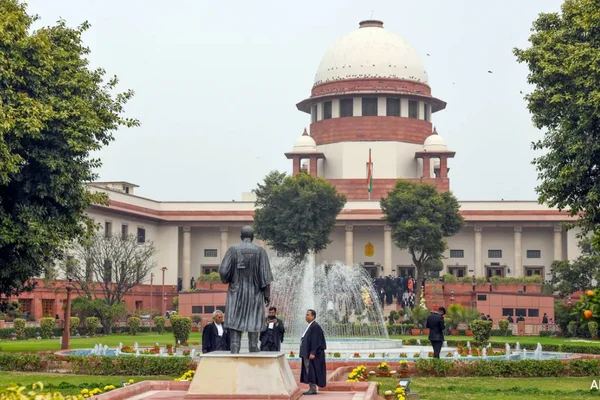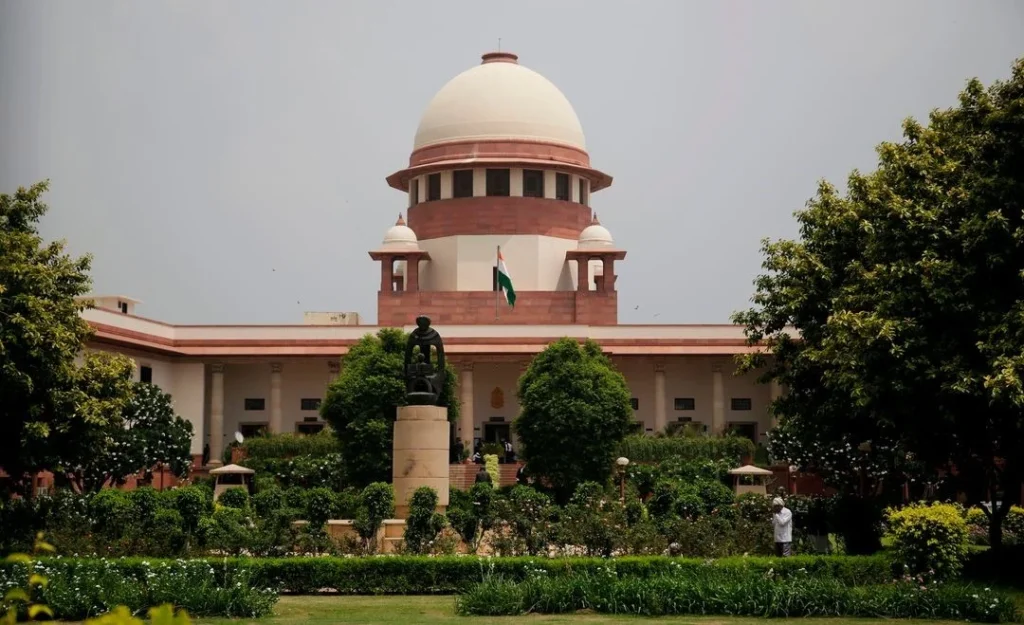In a recent verdict, the Supreme Court of India declared that Members of Parliament (MPs) and Members of Legislative Assembly (MLAs) cannot claim immunity from prosecution in cases of bribery related to votes or speeches in the House.
- The seven-judge Constitution bench, led by Chief Justice DY Chandrachud, overturned a significant 1998 judgment that granted immunity in bribery cases.
About Parliamentary Privileges:
- Parliamentary privilege, enshrined in Articles 105 and 194 of the Constitution, plays a crucial role in deliberative democracy by facilitating the functioning of a parliamentary form of governance.
- It guarantees that legislators can freely express their views and opinions on the House floor without concern for external influences.
- The protection of parliamentary privilege empowers legislators, even those from a political party with a limited vote share, to vote fearlessly on any motion.
Key highlights of the judgement:
Bribery Not Protected by Parliamentary Privileges:
- The Supreme Court emphasized that bribery is not protected by parliamentary privileges.
- Articles 105 and 194 of the Constitution, which grant powers and privileges to MPs and MLAs, do not extend immunity to cases of bribery.
- Article 105 of the Constitution safeguards parliamentary free speech, protecting MPs from prosecution for their statements or votes in the House.
- Similar protection extends to state Assembly members under Article 194.
Two-Fold Test for Legislative Privileges:
- Privileges conferred by Articles 105 and 194 are subject to a two-fold test.
- Firstly, it should be connected to the collective functioning of the House.
- Secondly, its necessity must bear a functional relationship to the discharge of the essential duties of a legislator.
- Consequently, it has been determined that constitutional immunity from prosecution for bribery in connection with a vote or speech in the legislature does not meet these criteria.
Overturning the 1998 Judgment:
- The recent verdict overrules the 1998 judgment in the PV Narasimha Rao case.
- The 1998 ruling had granted immunity to legislators in bribery cases, stating that they were immune as long as they fulfilled their end of the bargain.
- The Supreme Court had ruled with a 3:2 majority that MPs and MLAs were immune from prosecution in bribery cases as long as they fulfilled their end of the bargain.
Separate Crime of Accepting Bribe:
- The court clarified that bribery is not immune under Articles 105(2) and 194(2) as accepting a bribe constitutes a separate crime, not essential to the casting of a vote or the ability to decide on voting.
- Immunity provided under Articles 105 and 194 does not extend to cases of bribery, as these do not pertain to the duties of lawmakers.
- This principle also extends to bribery related to speeches in the House or within a committee.
Jurisdiction of the court:
- The court rejected the argument that judicial proceedings should be excluded due to the House’s authority, asserting that both operate in distinct spheres, and the court’s jurisdiction remains valid.
- Judicial proceedings cannot be excluded merely because bribery charges can also be treated by the House as contempt or a breach of its privilege.
Addressing Cash-for-Votes Trading:
- The ruling addresses the challenge of cash-for-votes trading, safeguarding the integrity of electoral mandates.
- Prior to this ruling, MPs and MLAs enjoyed immunity for accepting bribes and casting votes accordingly, which they have now lost.
Overturning the 2006 Judgment:
- The Court clarified that the principles outlined in the verdict regarding legislative privileges are equally applicable to elections for the Rajya Sabha, as well as for the appointment of the President and Vice-President of the country.
- Consequently, it overturned the observations in Kuldip Nayar v. Union of India (2006), which suggested that elections to the Rajya Sabha do not constitute proceedings of the legislature but are merely an exercise of franchise.
- This implied that such elections fall outside the scope of parliamentary privileges under Article 194.
| UPSC IAS Preparation Resources | |
| Current Affairs Analysis | Topperspedia |
| GS Shots | Simply Explained |
| Daily Flash Cards | Daily Quiz |


